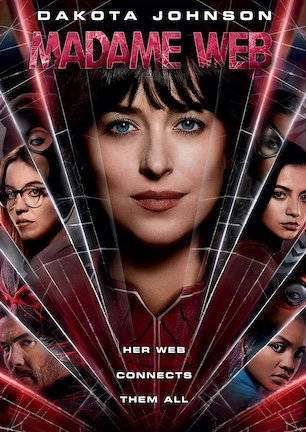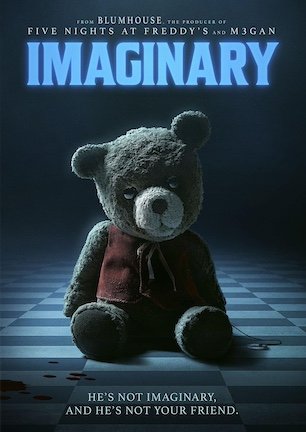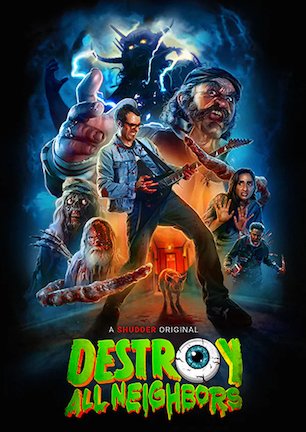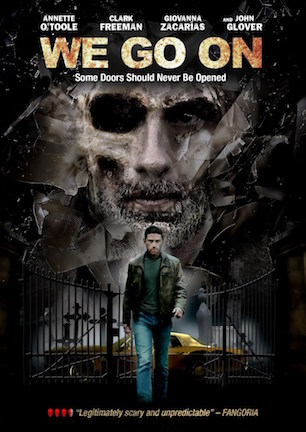Studio: Anderson Digital
Director: Patrick Ryan Sims
Writer: Patrick Ryan Sims
Producer: Douglas Elford-Argent, Patrick Ryan Sims
Stars: Dane Bowman, Jordan Savage, Claire Gordon-Harper, Aaron Turgeon, Johnnie Lyne-Perkis, Jonathan Hurley
Review Score:
Summary:
A family becomes prisoners in their own home when a robotic security guard’s malfunction causes him to target the humans as a threat.
Review:
When an intruder breaks into the model home of a planned community and terrifies the family living there, tech entrepreneur Mr. Aldridge reasons that the best way of safeguarding his prized complex is to install a robot refurbished as a security guard. Aldridge assures Mike and Karen Foster, who reside in the house with their daughter Jess and son Jake, that they will be safer with Dell protecting them. Dell has been programmed with “the ability to restrain, apprehend, and kill if necessary.” What could possibly go wrong by giving an experimental robot that kind of lethal autonomy?
A smarter idea would be to fix the wiring on the home’s pre-existing electronic system that failed when the intruder broke in the first time. The fact that Aldridge’s simple burglar alarm cannot function correctly offers little hope that putting a shotgun in the hands of a robot he designed will yield satisfactory results. That’s like saying, “my firecracker didn’t work? Here, try my atom bomb instead.”
Aldridge cannot even properly lube Dell’s machinery. It can be hard to tell who is a human and who is a robot since the cast emotes with comparable levels of plainness, but sound effects assist by making sure Dell’s bending joints always emit the telltale hydraulic whirr that other sci-fi movies realized were unnecessary decades ago.
Artificial voices in our real world haven’t used tin reverb since pop music had its Casio fascination in the 1980’s. Yet Dell’s voice has a synthesized echo that would make Siri shake her head in shame at how little robotics have progressed in the near future of “Echo Drive.” Or perhaps filmmaker Patrick Ryan Sims needed to insert an echo somewhere in order to justify the title, since almost the entire movie takes place inside one house and that house’s address is actually on Maple Avenue.
Joviality aside, “Echo Drive” probably has some metaphorical meaning related to the turn taken when the film reframes itself with a “what’s really going on” epilogue. Except by the time the script rolls up its sleeves to reveal another layer to the well-worn premise of A.I. run amok, the ridiculous character behavior, cheap production design, and jagged-edged technical execution have already sunk the film.
Characterizations are unintentionally hysterical, though it is a tough call deciding who is the movie’s biggest dimwit. Wife Karen is certainly a frontrunner. When Karen sees a masked intruder attacking her husband in the middle of the night, she reacts with less visible concern than if she spotted a spider on the toilet seat, yet smartly retreats to the bedroom and closes the door. Within seconds, the sounds of struggle cease and husband Mike does not respond when she calls his name. So she decides to open the door and tiptoe down the staircase to investigate cautiously as if the coast must suddenly be clear. Naturally, it doesn’t end favorably.
Like mother, like daughter however, as the empty-headed apple does not fall far from the tree. When another struggle is heard later, Dell’s gun goes off and the physical fighting continues. Teenager Jessica runs towards the sounds, cradling her little brother in her arms no less. Because after hearing gunfire, you definitely want to make sure you move the wee ones as close to the commotion as possible.
While the script strains to put personality into its people, the manner it chooses to detail their traits is all wrong. To show dad’s inattention towards his son, a request to help with homework is met with the response, “maybe next week.” Next week? Dad is a “day” trader, and U.S. stock markets close at 4pm EST. How busy are his evenings and how demanding is a six-year-old’s math homework that it has to be put off for a week? Simple things like this can be fixed with one quick dialogue tweak, but “Echo Drive” is content to be merely passable.
A number of candidates vie for worst line in the movie, and Jessica has several of them. Spontaneously exclaiming “thanks mom, that was really good!” at the dinner table while her plate is obviously full of food is pretty good. Better still is after the haywire robot pumps gas in the house to render the family unconscious, the kids make it downstairs and discover what they think is the dead body of their father’s friend. Jessica asks, “we heard mom scream, everything is okay, right?” Sure, sweetheart. You just escaped passing out after a renegade robot flooded your house with toxic fumes, you are standing over a bloody body, and you just heard your mother shriek because the entire house is still under siege, but everything is perfectly fine. Why would you assume otherwise?
Writer/director Patrick Ryan Sims seems like he had a basic idea in mind and then allowed a bare story and generic production to fall around it without plotting how the details would work together. Virtually everything about the film is “off” to some degree.
After the first break-in, Mr. Aldridge asks Mike, “you’re sure Jessica and Jake weren’t attacked?” What kind of question is that? Does he have a reason for thinking the children should have been attacked, or that their father would withhold telling Aldridge about it? The presumed intent here is to show concern, but the inquiry is phrased awkwardly.
Family dinner scenes are framed oddly with Mike alone at one end of the table while his wife and kids cluster at the other. An argument can be made that this serves a theme played into later, but late-inning revelations cannot redefine how certain sequences were perceived during previous moments.
Even the credit scroll is botched. Accuse me of picking nits if you want for timing this, but 46 seconds elapses from when a name first appears at the bottom of the screen to the moment it rolls off the top. The film itself is only 73 minutes long, so speculation wonders if the end credits were stretched to seven minutes on their own just to pad the runtime. Seriously, if you do happen to catch the movie, watch and see how excruciatingly slow the end credits are.
“Echo Drive” is as loosely held together as Dell’s circuitry, and just as faulty. An unhealthy obsession with fade outs, extended cuts to black, and confused editing, such as random shots of dad jogging intercut with a father-daughter one-on-one, expose rookie filmmaking faults and fractured scene design. But it is the stiffness of its characters and the lack of compelling content that ensure the movie has nothing innovative to add to a tired trope of robot vs. human boredom.
Review Score: 30







If you want to see impossible amounts of blood explode crimson colors like the world’s worst version of a gender reveal, well, “Abigail” at least has that.